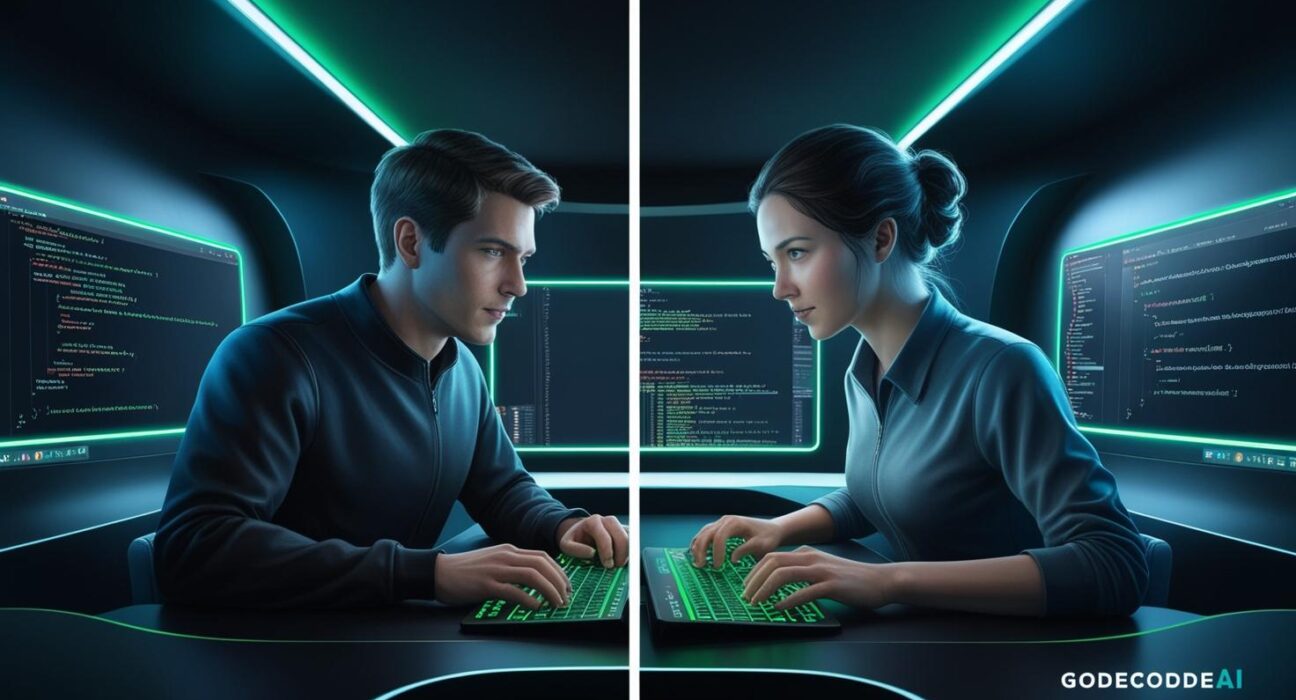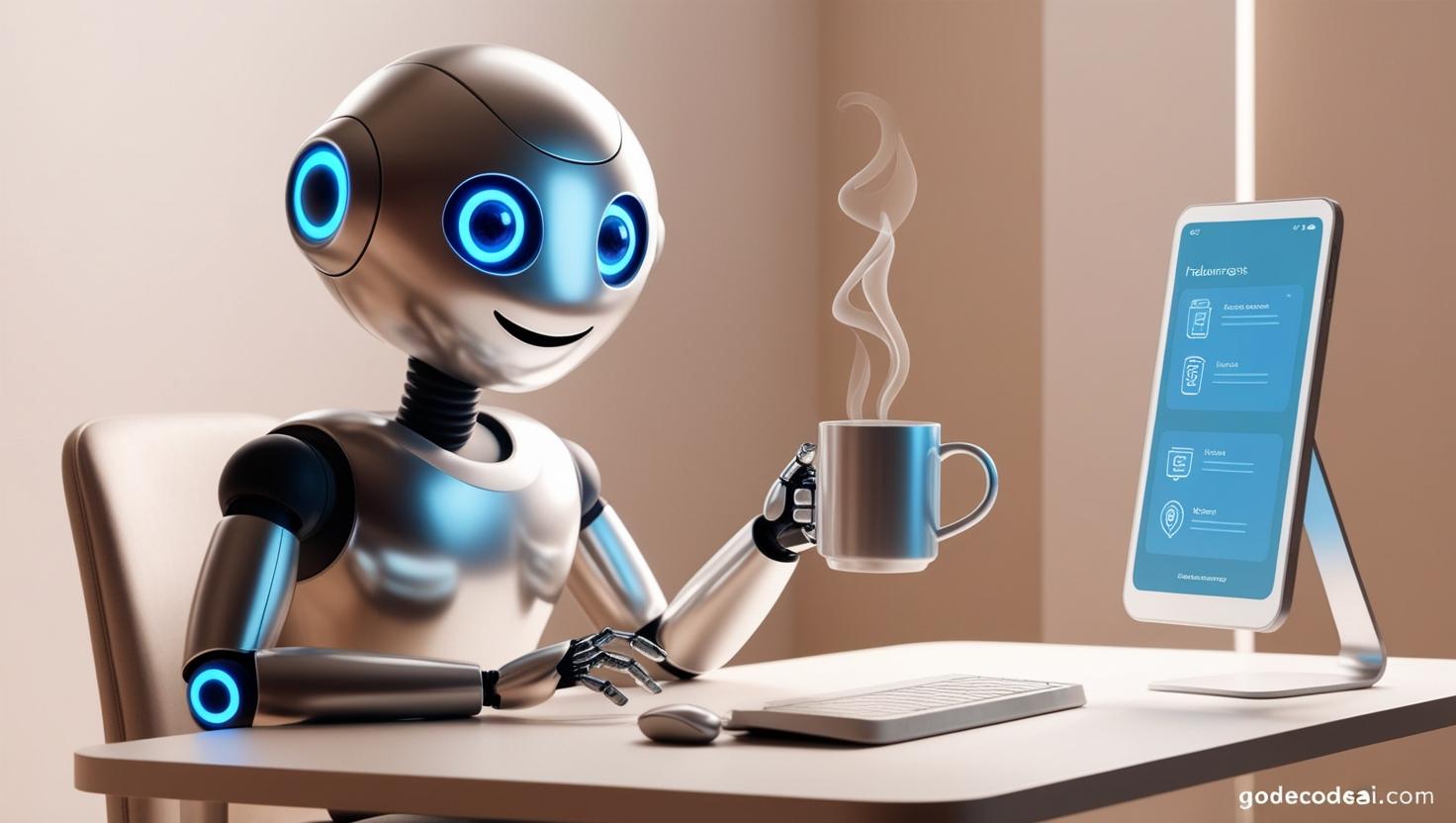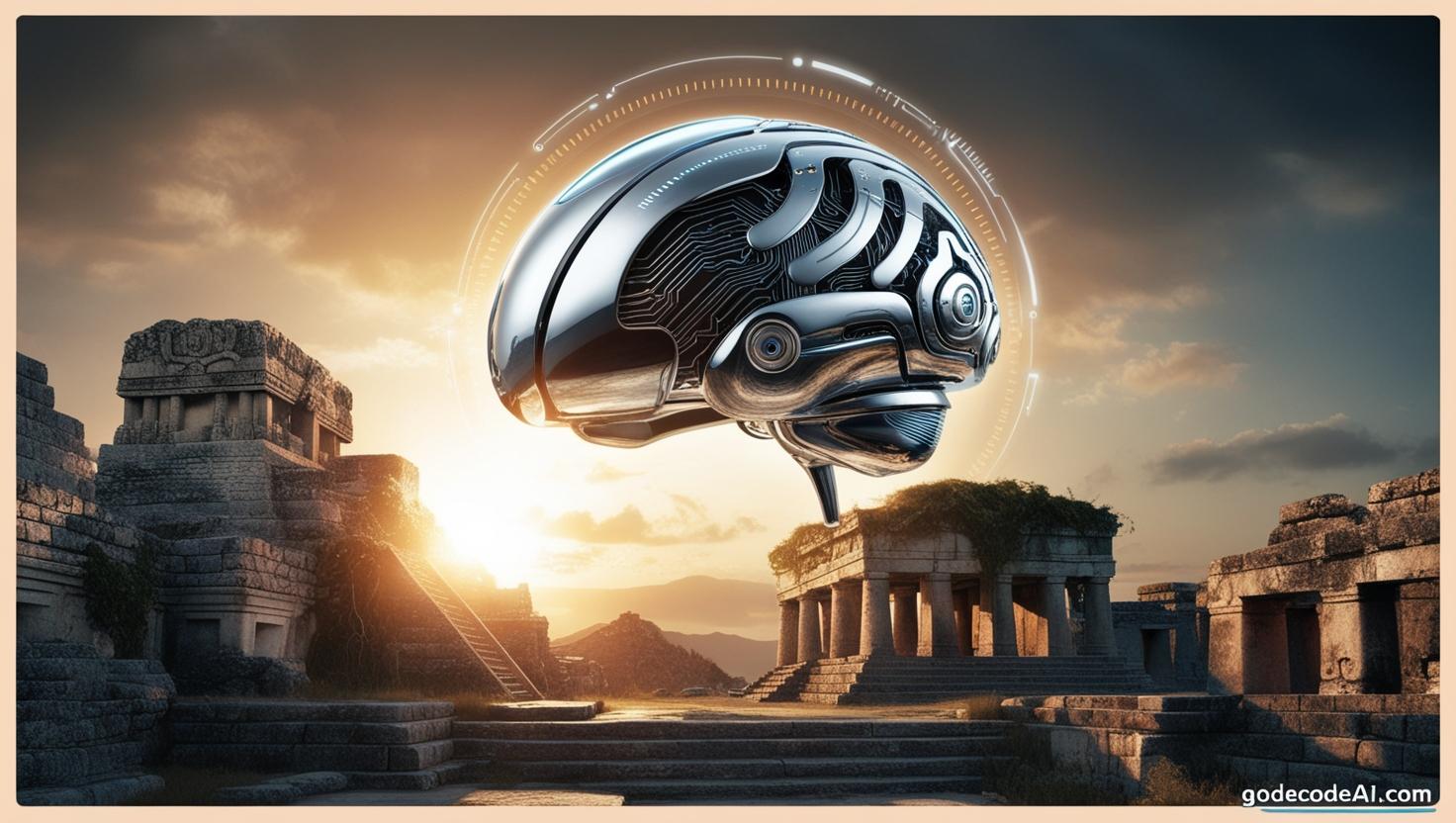Introduction: Fear, Hype, and the Future of Code
Every other week, some headline screams:
“AI just built an app in 60 seconds!”
“GPT-5 writes better code than humans!”
“Software engineers will be obsolete!”
The message is clear—and terrifying to many:
AI is coming for your coding job.
But is that the real story?
Or just another Silicon Valley hype loop?
This article cuts through the noise. Here’s the grounded, unfiltered truth about whether AI will replace programmers—and what you should actually be doing right now.
2. What AI Can Already Do (It’s a Lot)
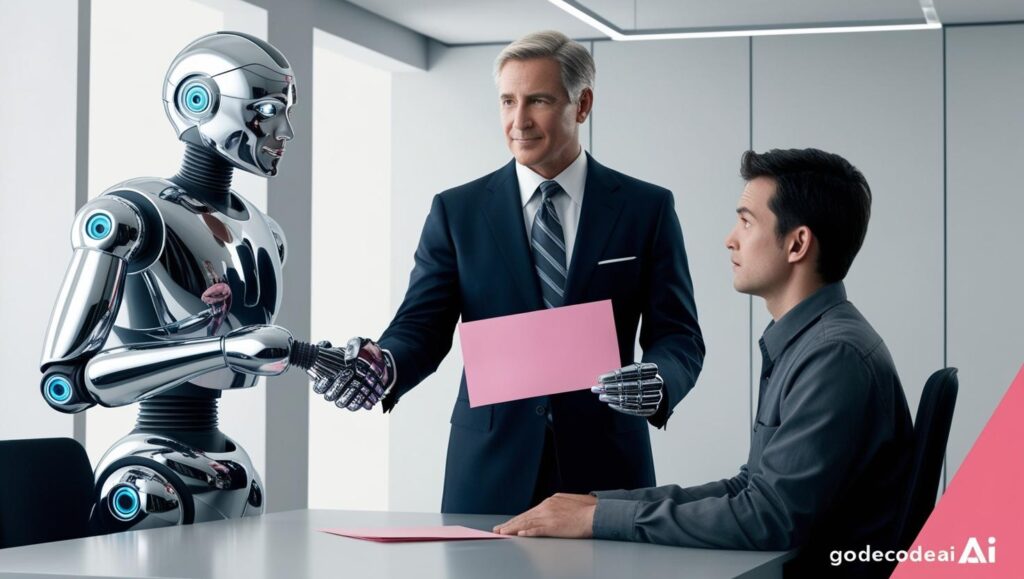
Let’s be honest: modern AI is already reshaping software development.
✅ Code Completion
- Tools like GitHub Copilot, CodeWhisperer, and Cursor suggest full functions in real time
- Speeds up tasks by 30–60%, especially for boilerplate and repetitive logic
✅ Bug Fixing
- LLMs like GPT-4 can spot bugs, suggest patches, and even write unit tests
✅ Refactoring
- AI can now rewrite legacy code, improve readability, and optimize performance
✅ Full-Stack Scaffolding
- With just a prompt, AI can generate React frontends, Flask backends, and working APIs
So yes—AI can code. But that’s only part of the picture.
3. What AI Still Sucks At
Despite the hype, AI has major gaps. Here’s where it still needs you:
🧠 Understanding Business Context
AI doesn’t know why a feature matters, what the business wants, or how users behave.
That insight only comes from product-minded devs.
🔍 Architecture & System Design
AI can suggest patterns, but can’t architect scalable systems or reason across services with tradeoffs in mind.
🔐 Security, Edge Cases & Legal
AI can introduce silent bugs, insecure code, or non-compliant solutions—without even realizing it.
👥 Team Collaboration
Code isn’t created in isolation. AI doesn’t understand team culture, versioning strategies, or cross-functional tradeoffs.
Bottom line: AI knows code. But it doesn’t know software.
And those are not the same thing.
4. What Will Actually Be Replaced?
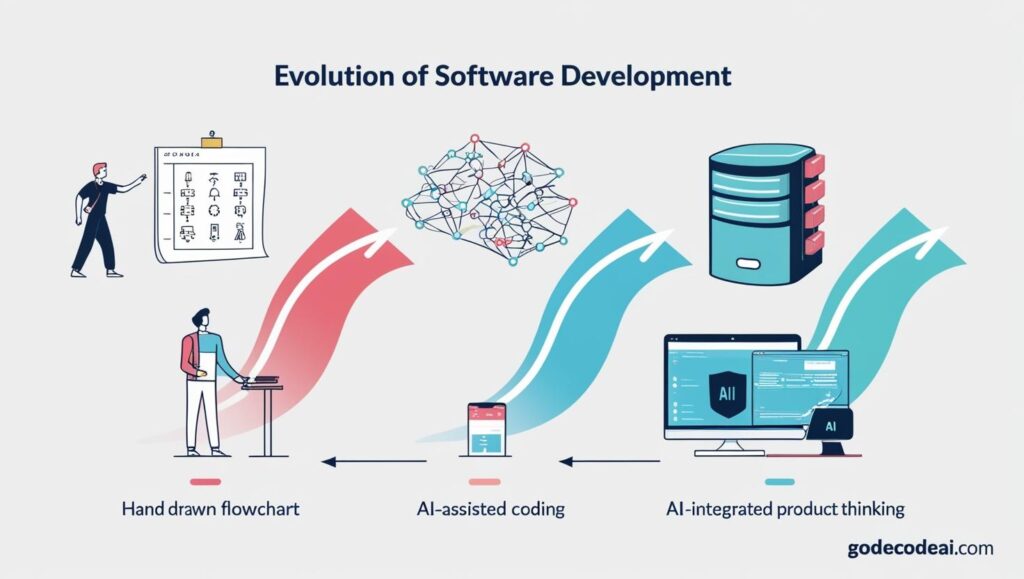
Let’s break it down:
| Role | Threat Level | Why |
|---|---|---|
| Junior Devs | ⚠️⚠️⚠️ | Most vulnerable. Tasks like CRUD, scripts, and tests are easily automated. |
| Mid-Level Devs | ⚠️⚠️ | Productivity will be boosted, but survival depends on upskilling fast. |
| Senior Devs | ✅ | Still essential for architecture, mentoring, and judgment. AI is a sidekick, not a replacement. |
| 10x Indie Builders | 💣 | Will thrive. A single person can now do the work of five. New leverage unlocked. |
Routine code is being commoditized.
But critical thinking, system intuition, and product sense?
Those are rising in value.
5. My Take: Programmers Who Ignore AI Are at Risk—Not Because AI Replaces Them, But Because Other Humans Will Use AI Better
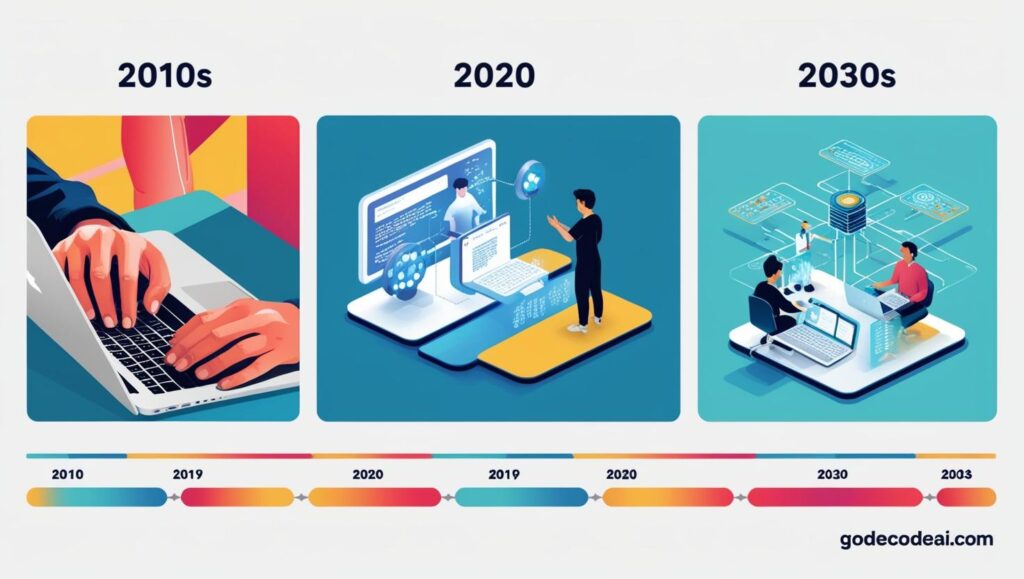
AI is like a calculator.
If you can’t use it, you’re slower.
If you master it, you’re unstoppable.
The future belongs to:
- Engineers who prompt like poets
- Architects who can fine-tune models for edge cases
- Builders who ship MVPs at lightning speed
- Developers who pair program with AI as an equal
This is not about fighting AI.
It’s about fusing with it.
6. What You Should Do Right Now
Here’s the roadmap:
✅ Start using AI daily
Copilot, GPT-4, Codeium, Cursor—pick one and master it.
✅ Learn prompt engineering
It’s not a gimmick. It’s the new IDE skill. Learn how to steer models, debug outputs, and build workflows.
✅ Build solo projects fast
Launch AI-powered MVPs. You’ll learn faster and become irreplaceable.
✅ Go deeper into system design, product sense, and human skills
These will never be automated.
✅ Stay adaptable
AI tools evolve monthly. Be the engineer who thrives in that chaos.
7. FAQs
Q: Will AI fully replace software engineers?
No. But it will replace certain tasks, especially those that are repetitive, isolated, or low-context. Adaptation is survival.
Q: What languages or stacks are safest from AI disruption?
None are truly safe—but domains like embedded systems, real-time control, security, and hardware-software integration remain AI-resistant (for now).
Q: Will learning to code still matter in 2030?
Yes. But it will matter differently—understanding logic, architecture, and systems will be more important than syntax.
Q: How do I future-proof my dev career?
Combine human strengths (creativity, collaboration, problem-solving) with AI tooling mastery. That’s your moat.
8. Final Word: The “AI vs. Programmers” Framing Is Broken
Here’s the truth no one’s telling:
AI won’t replace programmers. Programmers using AI will replace those who don’t.
It’s not a battle. It’s a merger.
If you’re code-savvy and AI-native, you’re not obsolete.
You’re supercharged.
This isn’t the end of your dev career.
It’s the beginning of the post-human software engineer.



